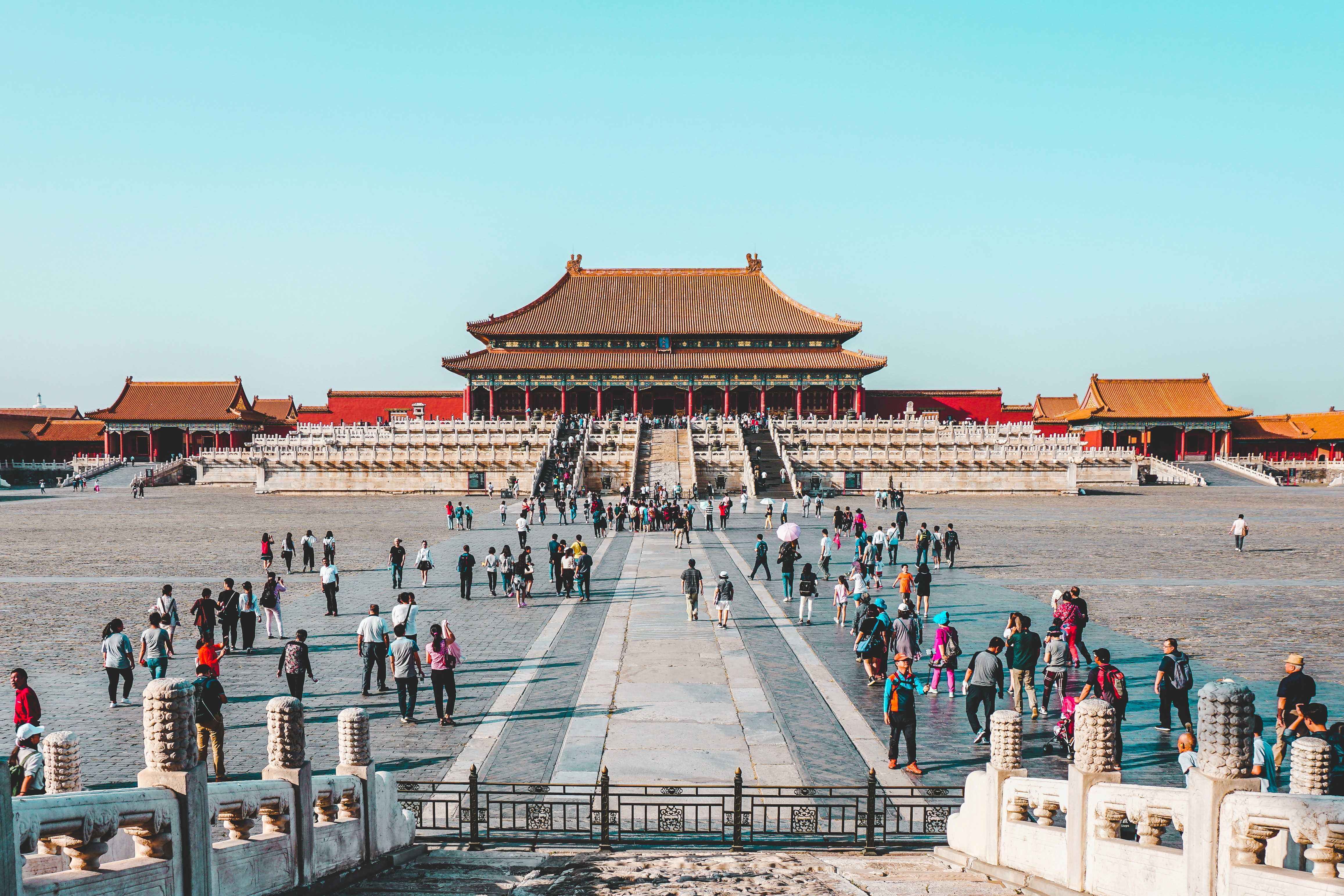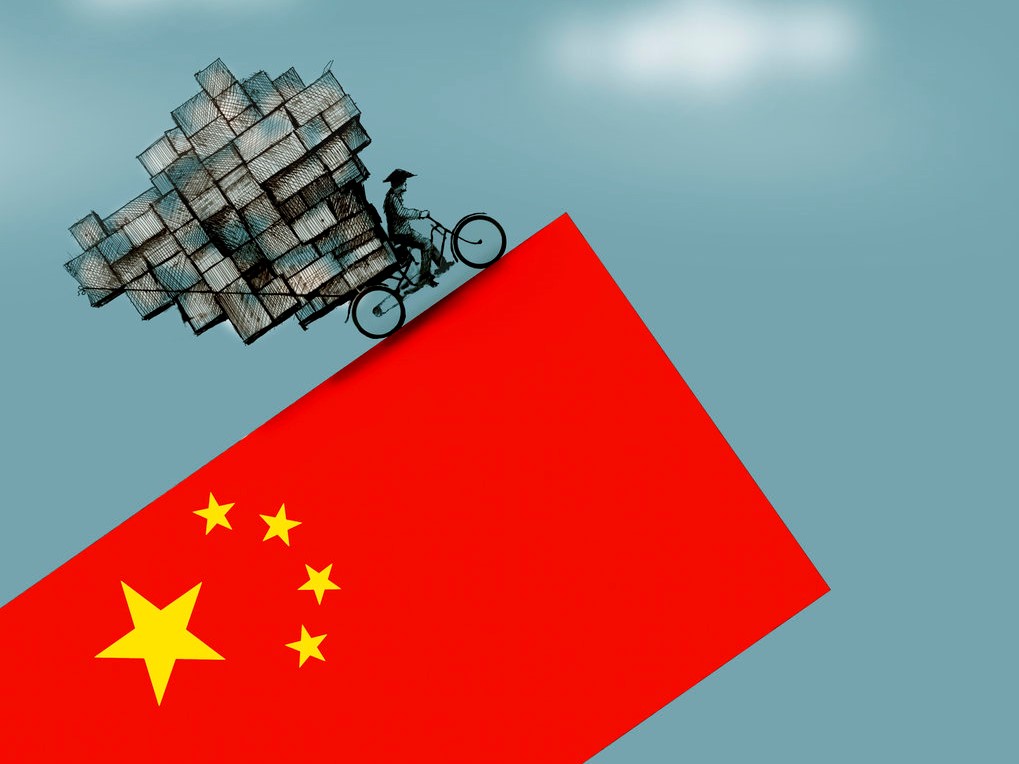
The relationship between China and the Western world has been tense, with certain steps coming into effect, for example, a ban on the trading of semiconductor chips and other advanced technologies.
Most recently, a U.S. congressional committee on China is investigating index provider MSCI and the world’s largest asset management firm BlackRock, looking into their connections to blacklisted Chinese companies. Back in 2021, various Chinese companies were blacklisted for violating human rights, or for their close relations with the Chinese military.
Earlier this year, the third-largest pension fund in Canada, Ontario Teachers' Pension Plan, shut down its Hong Kong-based China equities investing team.
With these headlines, one could draw an easy conclusion that China isn’t investable anymore. Is this true? And does geopolitics alone justify being underweight the biggest emerging economy? We spoke to experts, and found that no, China is not a market that is not investable, and indeed there are reasons apart from geopolitics for global funds not holding China as much as before.
Does China Growth Appeal to Global Funds?
In October 2020, thanks in part to a run up in the market, the average net exposure to China in the global large-cap growth equity category rose to the highest levels in recent history at 5.9%. Since then, growth funds’ exposure to China has been sliding to a low of 1.3% at the end of October 2022, when the S&P China ADR Index – tracking U.S. listed Chinese firms – also touched recent lows.
As of July 2023, the overall exposure of global large-cap growth funds to China hovers around 1.6% despite better returns in the ADR index.
Despite a deceleration in economic growth, China is still expected to score a 5% growth this year and 4% in 2024. Growth stories from the internet and technology and the electric vehicle segments continue to back some of the biggest names in the country.
The Largest Global Growth Funds Still Hold Less Than 5% in China
Down to the individual fund level, we have examined the five largest global large-cap growth funds for sale in the market and their portfolio holdings. None of the five studied strategies have invested in China as much as they had in the recent past. Also, they reported their smallest exposure to China in two years.
Among the strategies, the change in Neutral-rated Morgan Stanley Global Opportunity was the most prominent. The US$ 11 billion fund brought its China's weighting down from above 16% recorded at the end of February 2020 to 4.7% at the end of July 2023. The fund, managed by Kristian Heugh, remains the one holding the most Chinese stocks by net assets.
But why?
Two Structural and Cyclical Reasons for the Reduction in China Exposure
Morningstar manager research analyst Andrew Redden covers Morgan Stanley Global Opportunity Fund. He says there are structural and cyclical reasons that help to explain the downsizing of the China exposure in the fund. He highlights two:
- The regulatory crackdowns in 2021.
- Prolonged pandemic controls in China.
Let’s examine each in some detail. First, in 2021, Chinese authorities issued a regulatory crackdown in the fast-growing internet and education sectors. This, Redden points out, signaled increased risk and uncertainty in the region. “The manager, Kristian Heugh, believes that it is impossible to predict what the Chinese government will do next, and this uncertainty has likely made him less willing to invest in Chinese companies. He also likely recognizes that the government could take further action that could lead to permanent losses of capital,” Redden explains.
Second, prolonged pandemic controls in China have also curbed investor appetite. However, the long-term impact on the economy and the stock market is uncertain, says Redden.
Despite Reducing Allocation, Morgan Stanley Manager Maintains Optimistic Long-Term Outlook on China
That said, Redden also thinks the manager’s moves in China reflect a long-term outlook.
“Heugh is not willing to pile into low-multiple names in the hope of a quick turnaround. Instead, he is gradually reducing his allocations to China as he recognizes the uncertainty in the market. He believes that many of his concerns cannot be resolved overnight. Therefore, he expects his future moves in China to be gradual, keeping the long-term framework in mind.” Because of that perspective, Redden notes, Heugh is generally positive on China and remains overweight Chinese stocks relative to the benchmark.
According to Redden, MS Global Opportunity Fund currently holds two Chinese companies, consumer super-app Meituan, and online travel agent Trip.com.
He says: “These companies are attractively valued and are in less sensitive industries that could be impacted by top-down governmental control. The team has opted to stay away for the time being from names like TAL Education and names like Alibaba which have come under government scrutiny.”
China Companies Don’t Always Score High in Governance and Sustainability
Another angle of reducing manager’s stake in China is linked to quality concerns, says Ronald van Genderen, senior manager research analyst at Morningstar. He offers the Schroder ISF Global Sustainable Growth Fund as an example.
Charles Somers and Scott MacLennan, who co-manage Schroder ISF Global Sustainable Growth Fund, have liquidated all their Chinese stock holdings since July 2021. Months before the liquidation, the strategy had maintained a weightage of around 3-4% to China.
“The Schroders fund used to have some China exposure, but there was only one stock, Tencent, back in 2021,” says van Genderen.
“At that time, the managers had put the stock under review and were already evaluating if the stock was still eligible for the portfolio in terms of quality and fundamentals. Later in the summer of that year, they sold off the position exactly for that reason because it was not scoring sufficiently on the quality metrics.”
The fund has zero exposure to Chinese equities at the end of July 2023.
Van Genderen continues: “Ever since they haven’t had any Chinese exposure, they are not necessarily negative on China. It's more the case that they don't find the stocks that fulfill their criteria, in terms of quality. I would expect the same for other fund strategies steered by quality growth selection factors.”
How Much China Exposure Is in the Index?
Morningstar data show that the average weight allocated to China in emerging market equity portfolios has fallen from the 35% level three years ago to just over 25% in July 2023. Among emerging market equity funds, China’s loss has been India’s gain. India’s weight has risen to 13.4% on average in July this year, from an 8.5% level three years ago.
What’s similar for global growth equity funds is that the MSCI ACWI Index, a benchmark adopted by most funds in the category, saw India’s weight rising to 1.5% in July and the increase is second only to the U.S. Over the same period, China’s weight in the index dropped around 2 percentage points to 3.3%.
But, unlike the emerging market peers, a global equity mandate has a wider opportunity set and China takes only 3% of the index. That means, for benchmark-aware managers and investors, the weight is fairly small to begin with.
For global large-cap growth equity strategies, van Genderen thinks managers would have sufficient opportunities globally, given that China only makes up 3 to 4% of their benchmark index.
“If that’s a hefty underweight, if they would, say in the U.S. market by 20 or even 30%, that’s something that we should take into account. But, for other relatively smaller markets, at least a smaller weight in the MSCI index, that's not really a concern.”
Van Genderen emphasizes that excellent stock selection remains the most important alpha source. While rating a fund, he also looks for the consistency of the investment process which can tell about the fund’s style and alpha-generating ability.
“Managers need to be consistent with their stock-picking criteria and stated approach. So, I would be surprised that for a bottom-up fund, managers would take exposure in China just to have the China exposure and to not deviate much from the benchmark,” says van Genderen.
According to Morningstar Direct, Silver-rated Stewart Investors Worldwide Leaders Sustainability Fund and Neutral-rated Neuberger Berman Global Sustainable Equity Fund are among the strategies that reported zero exposure to China in July 2023. By August, Neutral-rated Janus Henderson Horizon Global Sustainable Equity Fund also liquidated its China positions.
Where Are Managers Finding ’Growth’?
For Schroders’s strategy, over the past three years, the managers have been doubling down in Japanese stocks. Van Genderen says: “Japan has been improving on corporate governance over the past five to 10 years so there's a link between that as well that they see more quality growth opportunities in Japan than they historically used to do.”
Opportunities in Brazil, India, and Korea are on the radar of Morgan Stanley managers, says Redden. He continues: “They are eyeing some interesting names with improving growth margins that can quickly scale new businesses and gain global market share in these markets.”
At the end of July, the fund holds a net exposure of 8.4% in India, 4.8% in Korea, and 0.9% in Brazil. The exposure to India was raised from 4% in 2020 while Korean stocks took a minimal 0.8% of assets. The fund only added to Brazilian stocks in February 2022. Over the same period, exposure to China is minimized.
Correction (April 25, 2024): A previous version of this article should have said that Morgan Stanley fund manager Kristian Heugh's long-term outlook on China is optimistic, not negative. The article has also been edited to clarify Morningstar analyst Andrew Redden's views on Heugh's asset-allocation decisions.












.png)



.jpg)





